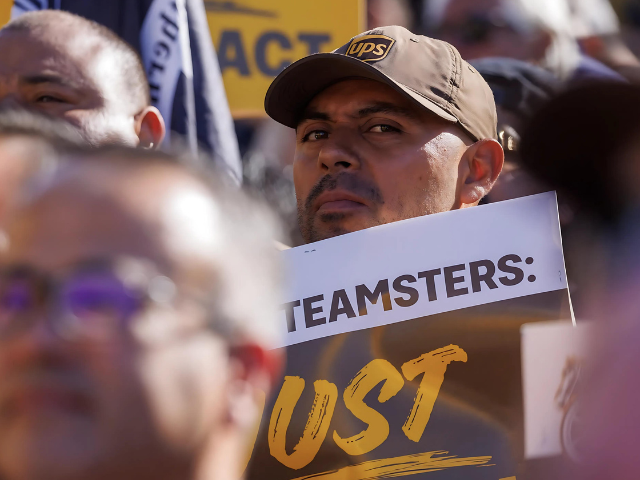Teamsters union declines to endorse Harris, Trump in 2024 election
Union representing 1.3 million members, has backed Democratic candidates in every presidential race since 2000

In a significant departure from tradition, the International Brotherhood of Teamsters has announced that it will not endorse either major party candidate in the upcoming 2024 US presidential election.
The influential union, representing about 1.3 million members, has backed the Democratic candidate in every presidential race since 2000.
However, on Wednesday, the Teamsters said neither Democratic Vice President Kamala Harris nor Republican former President Donald Trump had made commitments that aligned with the union's priorities.
In a statement, Teamsters General President Sean O’Brien expressed disappointment with both candidates.
“Neither major candidate was able to make serious commitments to our union to ensure the interests of working people are always put before Big Business,” O’Brien said.
The union had conducted unprecedented roundtables with the candidates, but no endorsements resulted from these meetings.
While the Teamsters' refusal to endorse a candidate is a break from their Democratic alignment, internal polling shows Trump holds a 25 percent lead over Harris among the union’s members.
Despite this, the union felt neither candidate garnered universal support.
Trump’s campaign pointed to the polling data as evidence that the "vast majority" of Teamsters members preferred him. Meanwhile, a spokesperson for Harris highlighted the vice president's strong history with organized labor, noting that several local Teamsters chapters and other large labor unions, such as the United Auto Workers (UAW), have already endorsed her.
The union's decision comes as both major political parties have been working to secure support from organized labor, a key voting bloc.
Historically, labor unions have leaned Democratic, but Trump has made efforts to court blue-collar workers by highlighting trade policies and appealing to frustrations with Washington elites.
Notably, O’Brien himself has been an outlier in the labor movement, having spoken at the Republican National Convention in July.
His appearance there raised eyebrows, with some labor experts criticizing the decision given the Republican Party’s traditional stance against workers' rights.
The Teamsters also sought a speaking slot at the Democratic National Convention in August but were not granted one.
This marks the first time the Teamsters have not endorsed a candidate since 1996.
Their decision reflects a growing political divide within organized labor and underscores the challenges both Trump and Harris face in securing the support of blue-collar workers ahead of the November 5 election.



















COMMENTS
Comments are moderated and generally will be posted if they are on-topic and not abusive.
For more information, please see our Comments FAQ